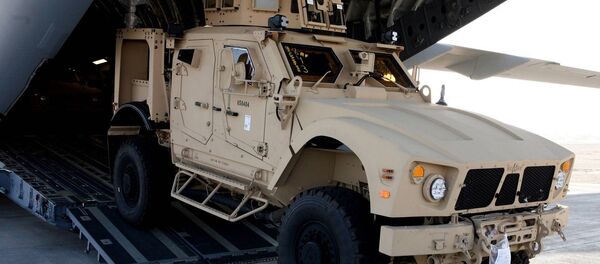US President Donald Trump's proposed 2020 budget includes $5.4 billion for the Foreign Military Financing (FMF) grant assistance program; however, a US State Department official told Defense One Tuesday that the Trump administration really wants $8 billion for the fund.
Jointly managed by the Defense and State Departments, the FMF program provides US defense partners with loans to buy US equipment: funding that averages annually around $10.5 billion by DOD and $8.1 billion by the State Department, according to a February 2018 report on the FY 2019 budget by the Congressional Research Service.
However, Trump's proposal revives a plan torpedoed in 2017 to fund grants, too, "so that America can still be the defense supplier of choice for partner countries for which loans are not the best option."
"This expanded set of FMF tools would help support increased US defense sales and increase opportunities for allies and partners to build their militaries around US innovation and quality," the budget proposal, submitted Monday, states.
The proposal also seeks "interest rate flexibility for the FMF direct loan program to make US defense equipment a more competitive and more affordable option for partner countries," according to the budget summary. "The Budget also requests authority to provide partial US Government-backed loan guarantees to incentivize the private sector to fill the defense financing gap, reducing the risk to US taxpayers."
William Hartung, director of the Arms and Security Project at the Center for International Policy, told Defense One that buyers defaulted on loans several times in the 1980s and subsequently looked elsewhere for more generous terms.
What motivates the administration now is the fear that better terms from "near peer" adversaries like China and Russia will attract buyers away from American defense companies.
"Pretty much anywhere where we would like to see partners deepen and strengthen the relationship with US by investing in the diplomatic partnership, that comes with building your defense capabilities by buying American," the unnamed State Department official told Defense One.
While the proposal includes provisions designed to expand the field of potential recipients, the lion's share of FMF will go to just three nations: Israel, Jordan and Egypt, which are supported by memoranda of understanding in their reception of FMF aid.
Since Jordan joined the war against Daesh in 2015, US military aid to Amman has been bumped up from $660 million to $1 billion annually, Reuters noted. It's unclear how the militant group's imminent demise will affect those numbers, though.
Another $1.3 billion each year goes to Egypt, part of the terms of the 1978 Camp David Accords designed to do just what the Trump administration aims to now: wean Cairo off of Moscow's military aid and keep it buying American.
Israel, meanwhile, collects $3.3 billion in FMF financing annually from Washington, the budget proposal notes, "to bolster Israel's capacity to defend itself against threats in the region and maintain its qualitative military edge."
Other major recipients have included Iraq, which got $250 million in 2016 to buy weapons for its fight against Daesh; and Afghanistan, which received $283 million in FMF loans from the State Department that year, according to the CRS report cited above.
The last time the Trump administration attempted to turn FMF into a loan program was in 2017, but leading lawmakers balked at the idea, with Sen. Lindsey Graham (R-SC) saying at the time, "You have to show me where a loan is better for our national security."





